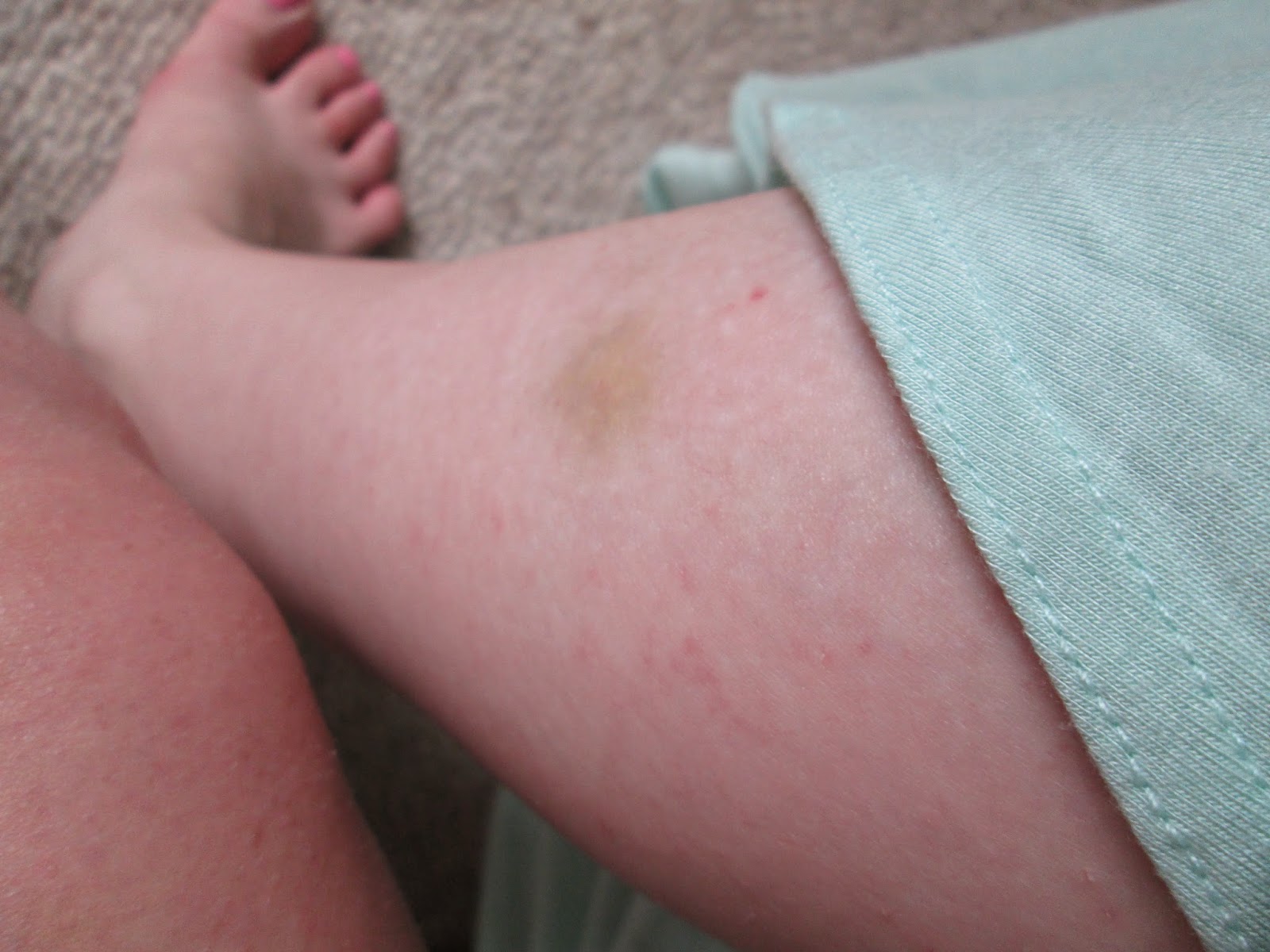Why a Zebra?
"When you hear the sound of hooves, think horses, not zebras."
This phrase is taught to medical students throughout their training.
In medicine, the term "zebra" is used in reference to a rare disease or condition.
Doctors are taught to assume that the simplest explanation is usually correct to avoid patients being misdiagnosed with rare illnesses. Doctors learn to expect common conditions.
Doctors are taught to assume that the simplest explanation is usually correct to avoid patients being misdiagnosed with rare illnesses. Doctors learn to expect common conditions.
But many medical professionals seem to forget that "zebras" DO exist and so getting a diagnosis and treatment can be more difficult for sufferers of rare conditions.
Ehlers-Danlos Syndrome is considered a rare condition and so EDS sufferers are known as medical zebras.
Back in October I was finishing off my last few Physiotherapy sessions for my back injury, and I mentioned to my Physiotherapist that I often get pain in my feet and knees (sometimes other joints) after doing absolutely nothing to bring it on.
The best way to describe the foot pain is to imagine that you have been running a 10k race...when you've only been sat down or have done minimal exercise that day.
The best way to describe the foot pain is to imagine that you have been running a 10k race...when you've only been sat down or have done minimal exercise that day.
She had a look and my joints and asked a few questions about my medical history...
"Looks like you have Hypermobility Syndrome. That means you'll be 'Chronically Clumsy' - See how your knees bend backwards..."
"Looks like you have Hypermobility Syndrome. That means you'll be 'Chronically Clumsy' - See how your knees bend backwards..."
And then I realised that my knees weren't normal. I always knew I had 'double jointed' fingers & toes...My elbows were really bendy as a child too. I got told at the age of 6 by a classmate that my crooked finger was 'gross'.
This information was only given to me 3 days before my wedding... I had a lot more to worry about than another new fancy name for my extra bendy extremities!
Last week, I answered a '20 facts' Post on Instagram that I was tagged in & casually mentioned that I have Joint Hypermobility Syndrome...
I had several people ask me questions & requesting Pictures of proof!
I also had a few "I have that too - but only in my Knees/wrists/elbows" comments.
I also had a few "I have that too - but only in my Knees/wrists/elbows" comments.
Only having hyper mobile joints in 1 or 2 areas is not Hypermobility SYNDROME.
It is literally just being hypermobile in selected joints.
The criteria for diagnosing Hypermobility Syndrome are Called the Beighton & Brighton Score.
Left thumb to Forearm - 1 Point
Right Thumb to Forearm - 1 Point
Right Pinky extended past 90 degrees - 1 Point
Left Pinky extended past 90 degrees - 1 Point
Left Knee extended beyond 10 degrees - 1 Point
Right Knee extended beyond 10 degrees - 1 Point
Legs Straight, Palms Touching Floor - 1 Point
Left elbow extended beyond 10 degrees - 1 point
Right elbow extended beyond 10 degrees - 1 point
Total Score - 9/9
Joint hypermobility is often hereditary (runs in families).I have a few family members I know of who have double jointed bodies - My great Granddad & My Sister are 2 of the most obvious ones to me.
One of the main causes is thought to be genetically determined changes to a type of protein called collagen. Collagen is found throughout the body – for example, in skin and ligaments (the tough bands of connective tissue that link two bones together at a joint).
If collagen is weaker than it should be, tissues in the body will be fragile, which can make ligaments and joints loose and stretchy. As a result, the joints can extend further than usual.
JHS is widely thought to be a feature of an underlying condition affecting connective tissue called Ehlers-Danlos syndrome (EDS). (Pronounced ELLERS DANLAWS)
I have been looking into EDS for a few weeks now and I think it may be worth a trip to my GP to get an official diagnosis - If only it were that easy!
People with hypermobile EDS may have:
- joint hypermobility – the joints have a wider range of movement than usual. CHECK
- loose, unstable joints that can lead to dislocations and subluxations (incomplete or partial dislocation of a joint). CHECK
- joint pain and fatigue. CHECK
- joints that "click" and are easily bruised. CHECK
- gastrointestinal complications. CHECK
- symptoms that affect the autonomic nervous system (the nervous system that controls your automatic functions, such as breathing and urination) – this includes postural tachycardia syndrome, which causes fast heart rate, dizziness and fainting
- mitral valve prolapse – a heart valve abnormality
- uterine, rectal or bladder prolapse
- urinary dysfunction
- dental problems. CHECK
- low bone density (osteoporosis) - Possible.
Luckily for me I don't have all the symptoms, but I do have quite a few. I will highlight the next lot of symptoms I have to demonstrate what I have had to deal with on & off since I was tiny...
Some other Symptoms include -
- stress incontinence – a type of urinary incontinence that occurs because the pelvic floor muscles are too weak to prevent accidental urination
- hernias – where an internal part of the body, such as an organ, pushes through a weakness in the muscle or surrounding tissue wall
- in women, pelvic organ prolapse – where the organs inside the pelvis slip down from their normal position
- varicose veins – swollen and enlarged veins, usually blue or dark purple
- flat feet – where the inner part of your feet (the arch) is not raised off the ground when you stand
- headaches Especially Migraines
- drooping eyelids & Myopia (Near Sightedness)
- a tendency to bruise easily and develop stretch marks
- thin or stretchy skin
- dizziness or fainting Your blood pressure can drop to low levels, making you feel sick, dizzy and sweaty. You may also faint.
- tummy upsets
- sweating
- a sensation of anxiety
- purple puffy fingers and feet
- a pounding or fluttering heart beat (heart palpitations)
- gastro-oesophageal reflux disease (GORD) – where stomach acid leaks from your stomach to your gullet, causing symptoms such as heartburn
- gastroparesis – where the stomach has difficulty emptying its contents into the small bowel, which can cause bloating and nausea - possible but not convinced.
- constipation
- irritable bowel syndrome (IBS) – a disorder that affects the digestive system, causing tummy pain, diarrhoea and constipation
- pain and stiffness in the joints and muscles – particularly towards the end of the day and after physical activity
- clicking joints
- back pain and neck pain
- fatigue (extreme tiredness)
- night pains – which can disrupt your sleep
- poor co-ordination
- recurrent joint dislocations – such as a dislocated shoulder
- recurrent soft tissue injuries – such as sprains and sports injuries
Anyone who has lived with me or known me for at least 10 years will know how 'accident prone' I am and how many times I showed up to school with something sprained, dislocated, bruised or broken! (N.B I am aware that I may have repeated myself with the symptoms...But never mind!)
I have some photos of the bruises I have discovered between yesterday morning and now...(My legs are not very beautiful at the moment and usually I would edit them to make them look better... but for the purpose of being factual I decided not too...)
I have some photos of the bruises I have discovered between yesterday morning and now...(My legs are not very beautiful at the moment and usually I would edit them to make them look better... but for the purpose of being factual I decided not too...)
The long one that is long like a back slant I have had for nearly 3 weeks after leaning on the rung of a ladder for an hour...the other ones have appeared since yesterday morning.
The last few weeks I have had really bad pain flare ups and have been extra clicky. It's got to the point that I am no longer comfortable sitting or standing for more than an hour, I fidget a lot and I sometimes feel so exhausted that I have to have a 2 hour nap in the middle of the day. As written in a previous post I had dental complications and bad reactions to anaesthetic as well.
Unfortunately this is a Chronic Illness.
Fortunately I've been coping with it for so long without a name, that I try really hard to not let it affect me too much.
Fortunately I've been coping with it for so long without a name, that I try really hard to not let it affect me too much.
May is EDS awareness month - Although I am a new Zebra I will try to help answer any questions people may have :)
Thank you for taking the time to read this :)
Peace Out
Hailie
No STATS on this post as it has been written on the same day as my last one...










































%2Band%2Bher%2Bhuman%2Bsister%2Bplaying%2Bon%2Bthe%2Bbeach%2Bx.jpg)





























